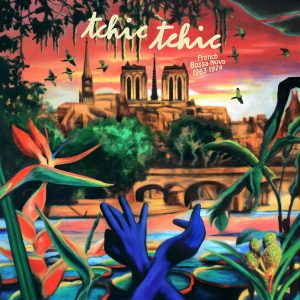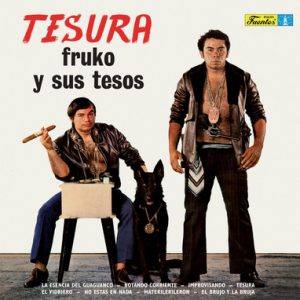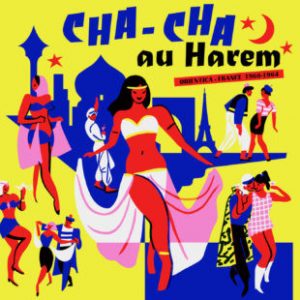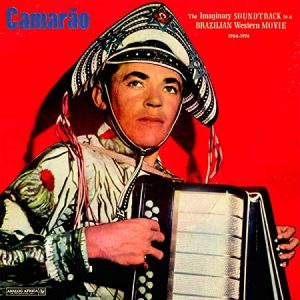Descripción
El Dragón Criollo – Pase Lo Que Pase
Tracklist
| A1 | La Número Uno | |
| A2 | La Brisa | |
| A3 | Líbrame De Todo Mal | |
| A4 | Hoy No Moriré | |
| A5 | Cumbia Fantasía | |
| B1 | Mientras Unos Mueren | |
| B2 | Contigo | |
| B3 | Ojos De Bosque | |
| B4 | El Día Que Te Vayas | |
| B5 | Pase Lo Que Pase |
El Dragón Criollo – Pase Lo Que Pase
Hope and liberation rein free on an album overflowing with Caribbean cumbia flavours.
On his debut album as El Drágon Crillo, Colombian producer, musician and singer Paulo Olarte Toro finds a meeting place between bouncing Caribbean cadences and dance floor- ready beats that threaten to propel your body into motion.
Pase Lo Que Pase (translating as Whatever Happens, Happens) is one of those albums that threatens to take you some place new, in this case to the Colombian Caribbean some time around the 80s or 90s, when analog synths, punchy drum machines and Afro- Caribbean guitar melodies ruled the roost. The fact it was this era when Olarte Toro was growing up in Colombia should not go unnoticed. Now based in Geneva, Switzerland, it’s like he’s dialling back the years to a more innocent musical time, re-imagining what it was like for those early pioneers of reggaeton (long before it became so commercial) and for the musicians on Colombia’s Caribbean coast augmenting their tropical vinyl sets with rough-and-ready samples and lo-fi drum sounds.
Within this sonic milieu, there is joy at every corner, from the moment opening track “La Número Uno” sets off on its stripped-back champeta rhythm. In its swirling guitar lines, programmed beat (slowed down to cumbia pace) and unrushed vocals it’s impossible not to lose track of time. Scratchy samples that mimic a dog’s bark and a beatific synth that enters the fray late on only add to the summery shimmer. Further twisted guitar lines are to be found on following track “La Brisa”, which was influenced by US West Coast 90s rock a la Jane’s Addiction (spot the reference if you can), while “Líbrame de Todo Mal” finds an unlikely union between reggae, a disarmingly-anthemic 80s synth line and stinging guitar, with the odd klaxon letting you know this is a party you’re at. It’s a fiesta at which you’re never far from cumbia, as on the mesmerising “Cumbia Fantasia”, but also throughout the album, where cumbia’s rhythm, instrumentation and traditions are continually hinted at. If musically there is much playfulness and a hint of nostalgia, albeit thrust up-to-date thanks to Olarte Toro’s production (lest it be known he has been making electronic music for nigh on 20 years), lyrically there is a heavy heart at play. The title track is a perfect example, as Olarte Toro states:
“’Pase lo que pase’ habla sobre la situación que vive en este momento Latinoamérica y que creo que es una situación que por mas de que es vieja, pues ha cogido como mucha importancia y ha cogido mucha mas conciencia por parte de la gente. Habla como de miedo de las nuevas generaciones ante una situación que ya no es soportable, entonces la gente quiere un cambio y ya no les importa a qué precio, ya no les importa si el precio que tienen que pagar es su vida.”
“’Pase lo que pase’ talks about the situation that Latin America is experiencing at the moment. It’s a situation that, even though it is old, has become more important and has gained much more awareness on the part of the people. It talks about how the new generations are afraid of a situation that is no longer bearable, that people want a change
and that they no longer care at what price, they no longer care if the price they have to pay is their life.”
While despairing at the continued inability of Colombia, and Latin America as a whole, to find peace, equality and a sense that the fight is there to be won, Olarte Toro is also hopeful. “Hoy No Morire”, with a Brazilian influence in its percussion and guitar, is the story of someone who faces social injustice every day and has grown increasingly tired of the struggle, yet in its chorus, “Hoy No Morire” (“Today, I Will Not Die”) it also shows their resistance and hope for a better time. “Ojos de Bosque”, a duet which likewise has a sprinkle of Brazilian bombast and is unafraid to get close to ‘pop’ terrain, was written when the first pandemic hit. It’s dedicated to Olarte Toro’s daughters, telling of the sadness that
came with uncertainty and confinement, but likewise it’s optimistic, looking for inspiration in daily life and showing that you should never lose the desire to continue.
With his arsenal of guitar, bass, analog synths (chiefly Roland Juno-106 and JX-3P), samplers and percussion, not to mention his guiding voice, Olarte Toro has created an album that could only have been made by him, by a Colombian who grew up with Latin rock, reggaeton, cumbia, champeta, etc., and who moved to Europe to become a noted
name in underground dance music circles. Since switching to making music wholeheartedly with a Latin tinge a few years ago he has not held back, releasing albums as a member of Acid Coco and Contento, with one from Jaguar to come.
Now, with his first solo album as El Drágon Criollo, we find him at his most playful, joyous and paradoxically realist, summoning a mesmeric sound that represents the Colombian Caribbean’s past, present and future.
Released December 10, 2021
El Dragón Criollo – Pase Lo Que Pase







